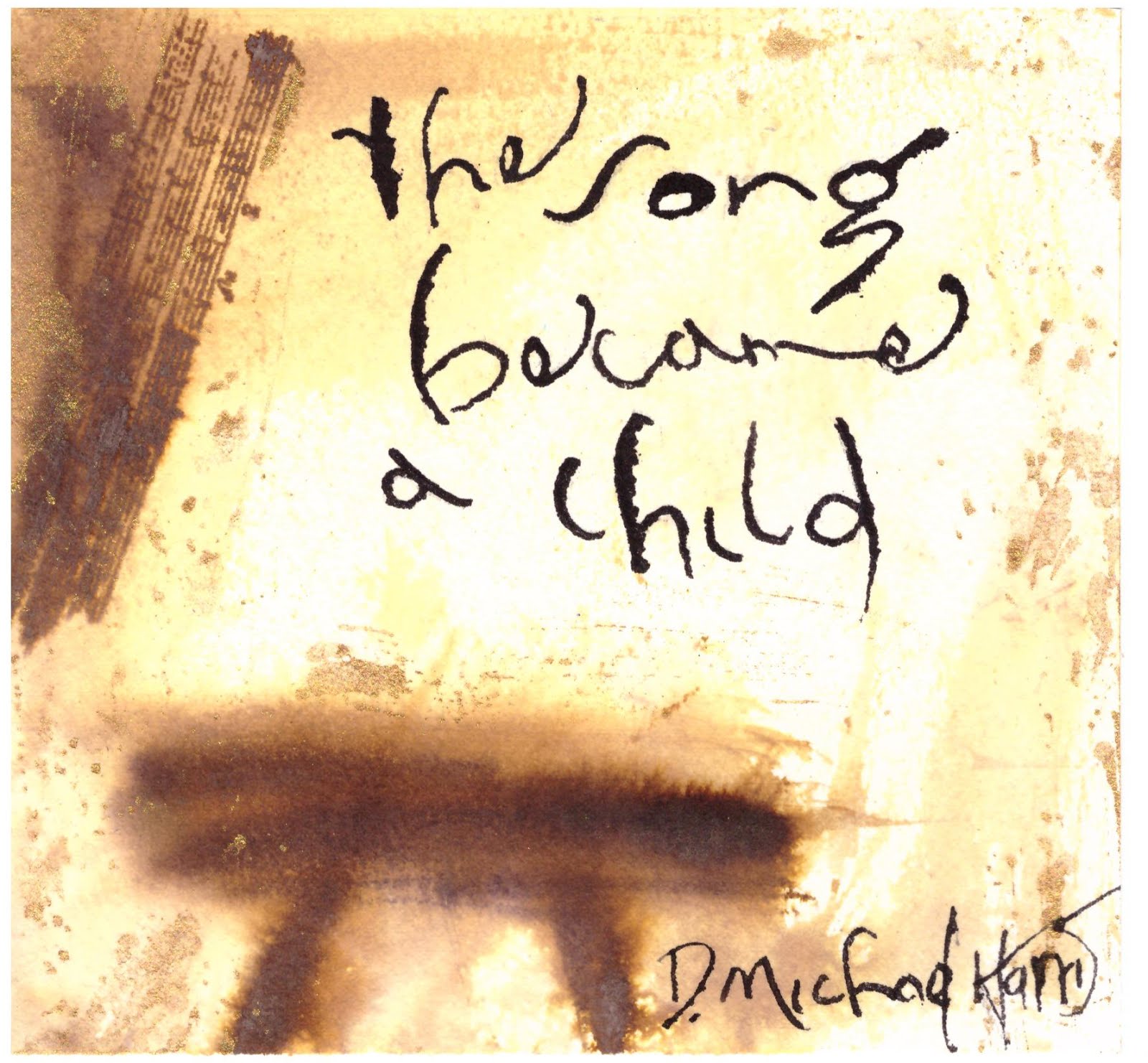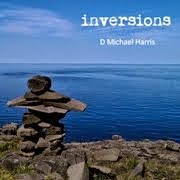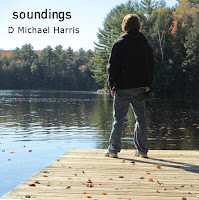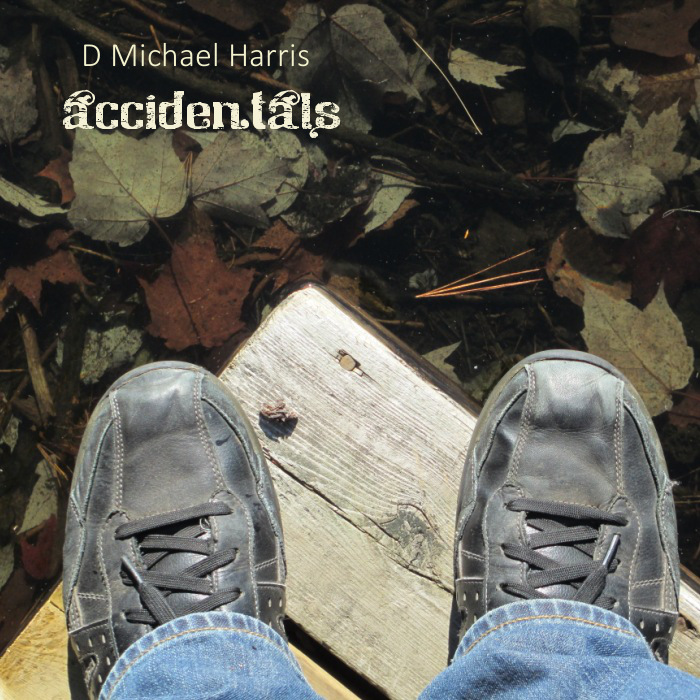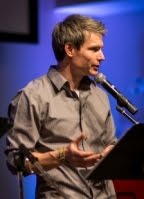If you would be my David
Then I’d be your Jonathan
Yeah, I’d take off all the trappings
Of the glory I got on
And I’d remove my armour
And I’d offer you my crown
If you would be a David
To my lonely Jonathan
And I would stand before you
Unclothed and unashamed
And I’d show you all my secrets
Just to hear you whispering my name
And if it meant I could no longer
Be my father’s son
Still I’d let you be my David
If I knew that I could be your Jonathan
Cause there’s a friend who sticks closer
Than any brother could
There’s a water that is thicker
Than the purest drop of blood
There’s a love that is more wonderful
Than any I have known
So hold me to your heart my Holy David
And I swear that I will be your Jonathan
O I swear that I will be your Jonathan
I swear that I will be…
And when the night is lonely
And the shadow’s running high
If I took my shot into the dark
Would you swear to never leave my side
And when my journey stumbles
And I’ve fallen on my sword
If I swore to be your Jonathan
Would you swear with all your heart to be my Lord?
Cause there’s a friend who sticks closer
Than any brother could
There’s a water that is thicker
Than the purest drop of blood
There’s a love that is more wonderful
Than any I have known
So hold me to your heart my Holy David
And I swear that I will be your Jonathan
O I swear that I will be your Jonathan
I swear that I will be…
My David, Your Jonathan (String Version)
Labels: songs
Heart and Soul, A Theological Exploration of Psychotherapy
Although I work full time as the lead pastor of a local church, with both an M.Div and a D.Min under my belt, I recently enrolled clinical counseling program through Tyndale University in Toronto. There is a bit of a long story behind this statement. When I left my previous ministry post I didn’t yet know where the Lord was going to lead me next, or even if he wanted me to continue in pastoral ministry at all, so I signed up to get trained as a psychotherapist, thinking it would be a good fit for me, should I discern that my days as a pastor were truly over.
As God would have it, my next ministry assignment opened up sooner than I expected, and I started pastoring another church—the church I currently serve at—before I had even completed one course in my degree. I still saw a great deal of benefit in completing my training as a therapist, however, so I rolled back my course load to parttime studies and started doing both: pastoring a church fulltime and earning a degree in counseling on the side.
Though it has been a challenge to balance the demands of church life and my studies at the same time, I have found this training to be indispensable to my work as a pastor. Even if I don’t ever go into clinical practice (the jury’s still out on that question), the things I have already learned about neuroscience, personality, emotional systems and psychopathology have helped make me a more effective pastor. Over the next few months at terra incognita, I intend to explore how, in a series that I’m calling "Heart and Soul, A Theological Exploration of Psychotherapy." I hope to share some of the things I’m learning in my studies, on the one hand, but also to discuss important connections between pastoral work and psychotherapy, on the other.
As just a sample of what some of those connections might look like, let me share a few thoughts about a book we read in a course on psychopathology I took this spring. It was called Blossoms in the Desert, and it was written by a psychiatrist named Dr. Thomas Choy, drawing on his many decades of experience as the head psychiatrist of a schizophrenia program in a Toronto hospital. Although Choy is a person of faith, his book is not explicitly Christian, rather it is focused on the “success stories” he has experienced with schizophrenia patients over the years, exploring what contributed to their success and encouraging people to reimagine what treatment for the severely mentally ill might look like.
What stood out to me as a pastor, however, was the emphasis Choy places on the role of hope in a schizophrenia patient’s recovery. Choy is not speaking about hope here in the Christian eschatology sense of the word—the final hope of redemption to eternal life that is ours in Christ. He is speaking more narrowly about the tenacious hope for recovery that seems to have played such a key role in the many success stories he has personally witnessed. Choy defines hope simply as “the expectation that what we choose today will affect what happens tomorrow,” and he suggests that it is this kind of hope that motivates patients to make the kind of choices that will result in their wellness rather than choices that will deepen their unwellness.
Choy offers some approaches to treatment that encourage this kind of hope in particular: using a strengths-based paradigm for treatment, helping patients make meaning out of their experience, and defining recovery not in terms of “being healed from mental illness” but in terms of discovering a new way of to live as a person with mental illness. If we only focus on the magnitude and severity of what is lost through mental illness, he argues, it can only lead to hopelessness and despair. Real life-transformation can happen, though, when we redefine what recovery means and reframe what it looks like.
Because I read Choy’s book as a pastor, as much as I did as a student of psychotherapy, I found myself resonating deeply with his definition of hope and the role it plays in helping people recover from severe mental illness. If hope really is an “expectation that what we choose today will affect what happens tomorrow”—even if that’s not the whole of what hope is, but only a part of it—then this kind of outlook is probably just as important for the mentally well person as it is for the mentally ill.
Oftentimes in Christian circles, our definition of hope is more deus ex machina than this, a mere blind trust that God’s gonna make it all work out; that Christ will return and take us home before the world becomes unlivable, or if we should die before that day, then the Lord will keep our souls safe and sound in heaven with him, when we do. And I’m sure there is some merit to this way of conceiving of hope. In the end our hope is in God and not in our own hard effort.
However, it is quite possible, and even pretty helpful, to adapt Choy’s definition of hope in a way that aligns very well with a Christian hope. Because, there is a profoundly Christian way of defining hope as the “expectation that what we choose today will affect what happens tomorrow.” All it takes is to acknowledge that, theologically speaking, the Lord Jesus sets the human will free, enabling it to choose to love and serve him, and inasmuch as this is a genuine freedom, our choice of him can be said to be a genuine choice. Even though it begins with God, and is empowered by God, and is brought through to completion in God, still, once God has taken the gracious initiative like this, our response is freely chosen.
So is our choice to pray, or worship, or witness, or meditate on the Word, or any other of the myriad of things that Christians do as an expression of their faith. And as far as I can tell from the Scriptures, these things really do have an affect on what happens tomorrow, because these are the means by which God ordained that we would grow in the things of Christ and he would accomplish his purposes in our lives.
In this way, hope is not just for the schizophrenia patient—though it is absolutely vital for the schizophrenia patient—but it is equally vital for all of us. Because what steps of devotion and commitments of discipleship would we make, if we really believe that God would use those steps, and honor those commitments, to make a difference in the world?
Labels: psychotherapy
I have Inscribed You, a song
I have inscribed you on the palms of my hands
I have etched you here on my side
And I wrote your name with the nails of the cross
On my hands and feet that they might never be lost
In the stripes of my back
With my arms stretched wide
I inscribed you, I inscribed you
I inscribed you on the palms of my hands
And I have placed you as a seal on my arm
I have set you here over my heart
And my love for you is stronger than the grave
It burns with all the brilliance of an unquenched flame
Like an empty tomb
When its gates burts apart
I have placed you, I have placed you
I have placed you as a seal on my arm
Look on the hands you have pierced
Fall at the feet whose heel you bruised
Touch the flesh that you tore in your sin and pride
See the blood that poured from his riven side
I was broken for you, it was poured out for you
It was offered to make all things new
I have inscribed you on the palms of my hands
I have etched you here on my side
And I wrote your name with the nails of the cross
On my hands and feet that they might never be lost
In the stripes of my back
With my arms stretched wide
I inscribed you, I inscribed you
I inscribed you on the palms of my hands
Labels: songwriting
In Bodily Form: The Role of the Body in the Ministry of Jesus
In Colossians 2:9, as part of an exhortation to the Colossian church not to be led astray by non-Christian systems of thought, Paul makes a passing but profoundly significant reference to the physical body of Christ. “In Christ,” he claims, “all the fullness of the deity dwells in bodily form” (NIV). Though “in bodily form” is an accurate rendering of the Greek here, the emphasis of this verse is not on the “form of the incarnation”—as though the human body of Jesus was simply an incidental “form” that God’s coming to us took, one form among many that it might have taken. Rather the emphasis is on the essential fact of the physical body—that the fullness of deity (το πληρωμα της θεοτητος) dwells “bodily” (σωματικῶς, as a physical body) in the person of Jesus Christ. The present active form of the verb κατοικέω (to dwell) underscores this: it is not that Christ “assumed a human body” for the purposes of salvation, only to discard it when God’s saving work was complete; rather through the incarnation, God took onto God’s self the full reality of a physical body in a permanent way, one that continues even now through the resurrection and exaltation of Christ. In this way, rather than saying, “in Christ God ‘took on’ a body,” or “Jesus ‘had’ a body,” it is perhaps theologically more accurate to say “in Christ, God ‘became’ a body,” and “Jesus ‘has’ a body.” Of course, the nature of the body he now has is only hinted at in the closing chapters of each Gospel, where we catch glimpses of the resurrection body of our Lord, nevertheless, as far as Paul is concerned, the Lord’s “bodily form” is still an ongoing reality, and its implications still obtain for us today.
This is important to keep in mind as we examine Christ’s “embodiment” as it is presented in the Gospels, because it assures us that the physical reality of Christ’s body was not merely tangential to his ministry, rather it was inextricably bound up with who he was and what he came to do. Inasmuch as Christ’s own body was the necessary matrix of his spiritual experience, our bodies, too, provide the necessary matrix through which we “receive and express the life of God in the world.” In particular we might note three ways that Jesus’ embodiment impacted his spirituality which are especially instructive for us. These are: the reality of physical limits, the importance of sensory experience, and the power of human touch.
One of the most vivid images in Mark’s gospel is the description of Jesus sleeping on a cushion in the stern of the disciple’s boat while the storm rages and the waves threaten to capsize them (Mk. 4:38). As it relates to a theology of embodiment, what stands out here is the obvious fact that Jesus needed sleep, and, if he were tired enough that he could sleep during a raging storm, one might assume he was exhausted. Sleep, fatigue, and exhaustion, of course, are all signs of our physical limits as embodied beings, reminders that our energy is not limitless and must be restored through sleep. We see similar examples of the physical limitations of his body in Christs experience of hunger and thirst. He hungered during his temptation in the desert (Matt. 4:2), for instance, and again on the Mount of Olives during Holy Week (Matt. 21:18). Like sleep, of course, hunger is another sign of our physical limitations: our energy must also be restored through basic nutrition. As a final example of the limitations of Christ’s physical body, we note the account of his healing ministry in Luke 4:42-43. Jesus has spent all night healing the sick, and when he sets out to leave the next morning, the crowds urge him to stay with them and continue as a healer in their midst. His reply offers a subtle but profound comment on the spatial limitations that are a necessary part of our embodied nature: “I must proclaim the good news … to the other towns also, because that is why I was sent” (Lk. 4:43). The obvious but often overlooked implication here is that, as an embodied person, Jesus can only be in one place at one time. To preach and heal in one town means he cannot preach and heal in another, a reality that requires difficult decisions daily about where and when and how he will spend his finite energy.
Besides giving him physical limitations, another way that Jesus’ body impacted his spirituality is in his sensory experience, the way his five senses mediated and heightened his experience of the world. We must read between the lines here, because none of the Gospels directly depict Christ as savoring smells or drinking in sights, but there is enough evidence to suggest that Jesus was intently aware of and deeply alive to his sensory experience of the creation. One of my favorite passages in John’s Gospel, for instance, is the account of Christ’s anointing at Bethany, where Mary pours a pint of pure nard over his feet and the house, we are told, “was filled with the fragrance of the perfume” (John 12:3). The fact that John’s Gospel so vividly recalls the fragrance in the air, and that in Mark’s account of the event Jesus says that Mary has done “a beautiful thing” for him (Mk. 14:6), suggests that it is not just the symbolism of the gesture, but also the rich sensuousness of it, that ministered to the Lord’s heart. We can read between the lines in a similar way in John’s account of the wedding of Cana, a story redolent with sensory data, if we stop to imagine it. Amidst the din of a (presumably drunken) wedding party, we find Jesus unapologetically turning bright, clear water into the richest, reddest wine imaginable, a wine so rich and red that it is met with laughter and wonder by the steward, who declares that it surpasses in strength and bouquet anything yet served. Stories like these suggest that, though it may be contrary to traditional Christian opinion, delighting in one’s sensory experience of the Creator’s world—the sound, scents, sights and tastes of creation—can be a holy experience.
One of the poignant details that echoes throughout the New Testament is the role that physical touch played in Christ’s ministry. Indeed, the Apostle John emphasizes this as one of the fundamental proofs of the Christian message—not simply that they heard Jesus or saw him, but that they physically touched him (“That . . . which . . . our hands have touched—this we proclaim concerning the Word of Life” (1 John 1:1)). Physical touch plays an especially important role in Christ’s healing ministry. We see him repeatedly healing others through the laying on of hands (MK. 6:5, Mk. 8:25, Lk. 4:40, Lk. 13:13, etc.). We see him taking little children “into his arms” and “laying his hands on them” to bless them (Mk 10:15, 19.15, etc.). In addition to this kind of healing touch, the witness of the Gospels also suggest that it was normal for Jesus to express affection for his friends through physical touch. The most compelling example is the way the Beloved Disciple “leaned back against Jesus” at the last supper (lit. lay back into his chest, John 13:25) in a way that suggests this kind of physical contact was not uncommon between them. Similarly, though the outcome of the kiss was a tragic betrayal, still, the fact that Judas greeted Jesus with a kiss in the Garden of Gethsemane suggests that this was not an uncommon form of physical contact for the Lord. While much of this was no doubt conditioned by his culture (cf. Paul’s reference to the holy kiss, e.g. 1 Thess. 5:26), still these examples suggest that Jesus was physically demonstrative in his affection for others. He embraced his friends, touched the hurting, held comrades close to his heart, and welcomed even his enemies with a kiss.
The significance of Jesus’ body has powerful implications for our understanding of our own bodies and the role they play in our spiritual experience. It suggests, for instance, that rather than seeing the limitations of the physical body as a curse or an obstacle to overcome, we should embrace them as gifts from God, one of the ways God teaches us dependence on him. Likewise, it suggests that a healthy spirituality will savor the sensuousness of the created world, delighting in the sights, sounds and scents of life as another gift from the Creator. Finally, it suggests that Christians should acknowledge the healing power of touch, and, in contexts where it is appropriate to do so, should not shy away from letting physical touch express the healing embrace of God in ways that Christ himself did.
Labels: embodiment, theology





